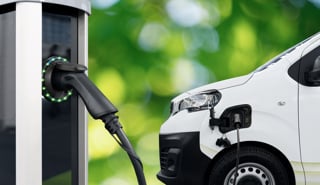Local authorities are being encouraged to bid for a portion of £2 million of central government support for a wide range of projects to improve air quality.
Since it was established, the Air Quality Grant scheme has awarded more than £61m to a variety of projects.
They have included the installation of electric vehicle (EV) charging points, improvements to cycling infrastructure and the development of local online air quality resources.
Environment minister Rebecca Pow said: “We know the impact air pollution has on public health, which is why we are continuing to provide funding to local authorities to help them to take action to improve air quality for the benefit of schools, businesses and residents. This is part of the much wider strategy to tackle air quality.
“Local authorities are in the best position to address the issues they face around their roads, and we are looking forward to receiving ideas for innovative schemes to reduce emissions and encourage cleaner, more active transport.”
Minister for the future of transport, George Freeman, added: “We know we need to step up the pace and clean up our air for everyone - from children on their way to school, to commuters travelling to work, and communities around the country.
“This vital funding will help councils to take forward exciting new technologies, improving air quality and making our communities cleaner, more vibrant places to live.”
Applications for the grant for 2019-20 are open from October 4 to November 7.
The Air Quality Grant forms part of the wider UK Plan for Tackling Roadside Nitrogen Dioxide Concentrations, which includes a £3.5 billion investment into air quality and cleaner transport.
The plan, says the Government, is supporting the uptake of low emissions vehicles, getting more people to cycle and walk, and encouraging cleaner public transport.
As a result of this plan, and alongside the Air Quality Grant, the government is working with 61 local authorities – and providing £495m in funding – to reduce nitrogen dioxide concentrations through local plans that are effective, fair, good value, and will deliver required improvements in the shortest time possible, it says.
Last year it also launched the Clean Air Strategy, which aims to halve the harm to human health from air pollution by 2030.





















Login to comment
Comments
No comments have been made yet.